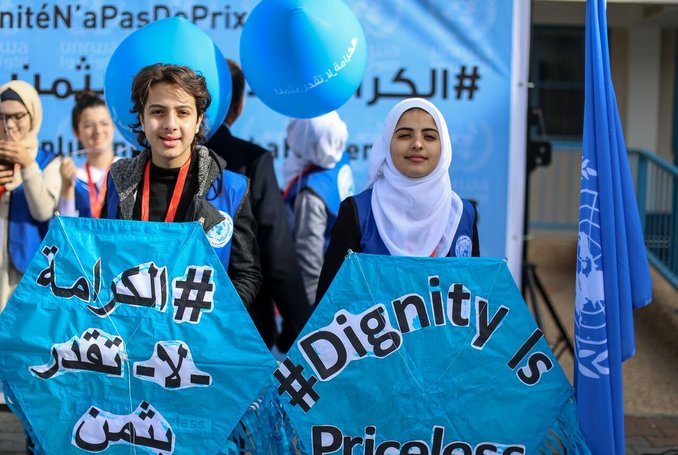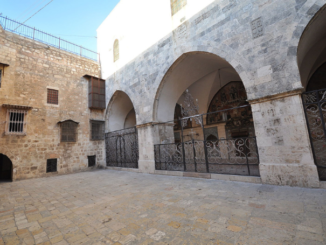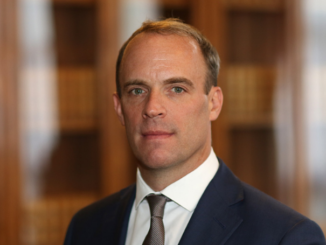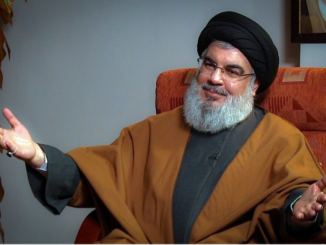
By Ramona Wadi
December 8, 1949, marked the establishment of the United Nations Relief and Works Agency for Palestine Refugees (UNRWA). Despite the recent Israeli-US conspiracy to eliminate the agency, as well as its internal shortcomings as evidenced by allegations of corruption and misconduct, it continues to provide services for Palestinian refugees 70 years later.
UNRWA is riddled with limitations, mostly due to the fact that donors are also collaborators in Israeli colonialism. In his speech commemorating the agency’s 70th anniversary, Acting Commissioner-General Chris Saunders referred to UNRWA’s renewed mandate, stating that “the UN General Assembly [UNGA] demonstrated its strong support for UNRWA and Palestine refugees.”
The other side of this narrative is the UNGA’s refusal to hold Israel to account for creating and perpetuating the plight of Palestinian refugees. As long as the international community finances aid for, and abuse against, Palestinians, UNRWA will remain relevant to the Palestinians, irrespective of its shortcomings.
However, with UNRWA and international discourse on one hand and the Israeli narrative, on the other hand, Palestinians are misrepresented. UNRWA’s press release marking its 70th anniversary speaks of the “Arab-Israeli conflict of 1948,” which comes from an organization familiar with the Palestinian Nakba and its narratives. The language that focuses on conflict as opposed to premeditated ethnic cleansing aids the Israeli fabricated narrative which refuses to acknowledge its creation of Palestinian refugees as a result of the Zionist colonization of Palestinian land.
Normalizing Israel’s colonialism has not endeared UNRWA to its detractors. Neither does it help Palestinians achieve independence and autonomy. Reducing UNRWA to a funding issue is brushing aside the centrality of Palestinian refugees to the Palestinian anti-colonial struggle and collective memory.
It is not only the Trump administration that can cause irreparable damage in this regard by attempting to change the definition of Palestinian refugees. The international community has claimed to uphold Palestinian rights yet it continues to restrict Palestinian narratives.
Funding UNRWA is important to alleviating the suffering caused by humanitarian deprivation as a result of Israel’s dispossession of Palestinians. Yesterday, the Netherlands resumed its funding of UNRWA and increased its donation to the agency from $13 million to $19 million. Austria has also signed a €2 million ($2.2 million) agreement for UNRWA to aid Palestinian refugees in Syria.
Without a doubt, UNRWA has faced unprecedented challenges, as described by former senior UNRWA director Chris Gunness. Yet the international community must stop making this issue a question of UNRWA survival while detracting focus from Palestinian refugees. A tweet from Gunness succinctly clarifies the dynamic: “They [Palestinians] need UNRWA but they don’t want it. They want their full political rights,” he stated.
Funding UNRWA is just the first step. If the international community was serious about upholding human rights, it would emphasize the importance of funding for humanitarian endeavors alongside the Palestinian political struggle, which is intentionally thwarted partly through the discrepancy between financial aid and human rights violations. The international community has failed generations of Palestinians.
It should be a matter of concern to the international community that, 70 years since the Nakba, the discourse of humanitarian aid still prevails over that of political rights.
– Ramona Wadi is a staff writer for Middle East Monitor, where this article was originally published. She contributed this article to the Palestine Chronicle.







